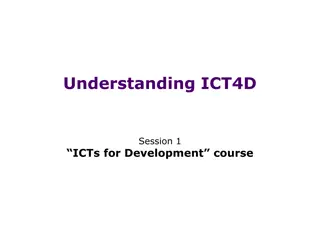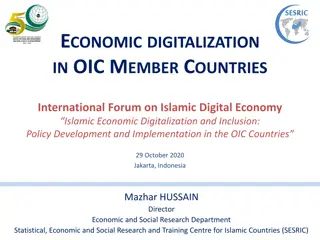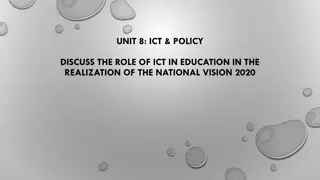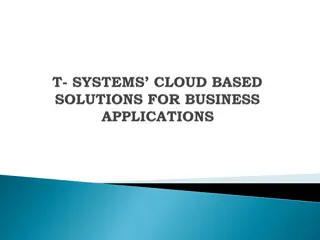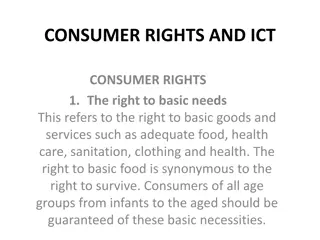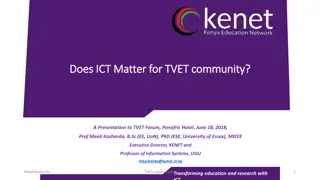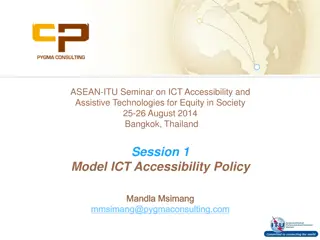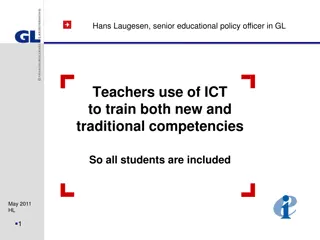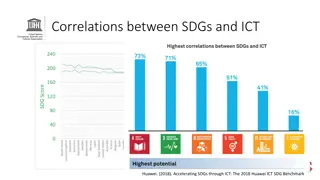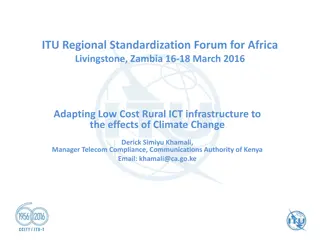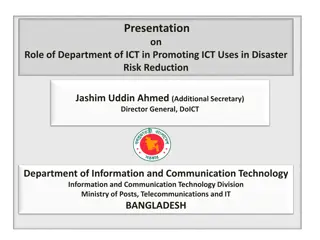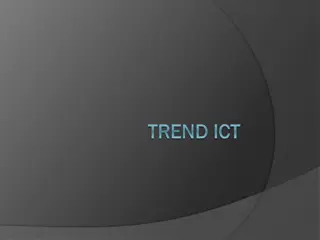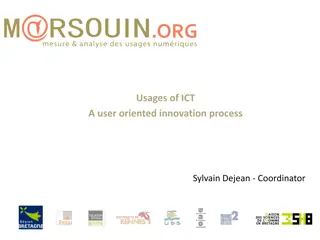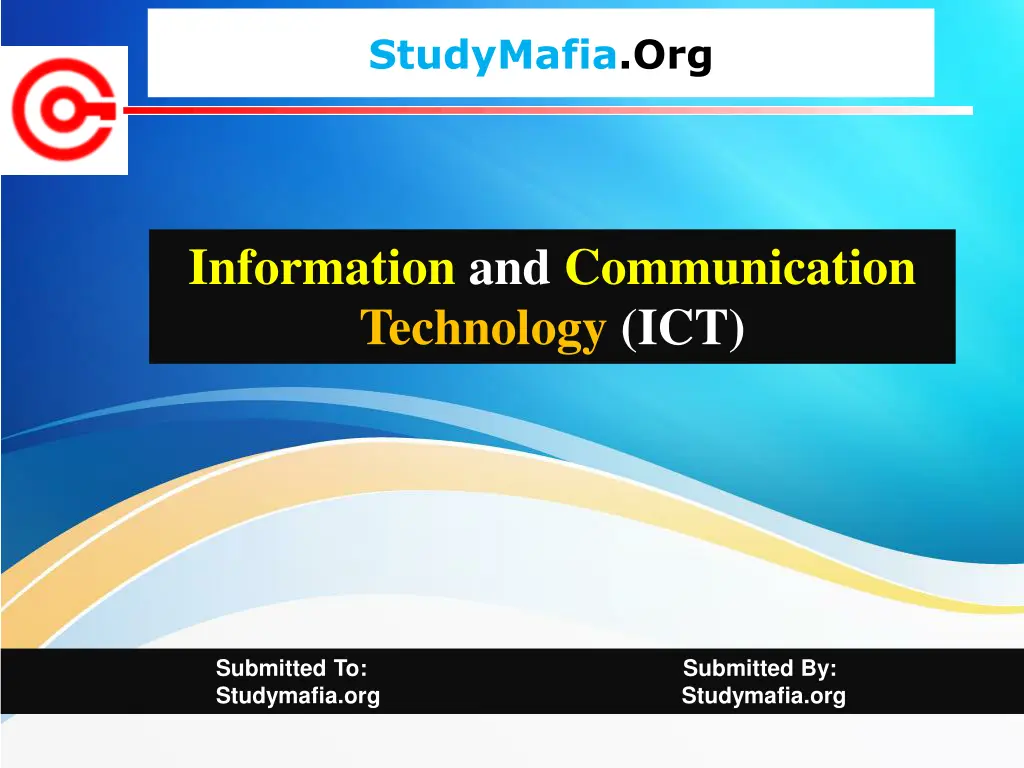
Understanding Information and Communication Technology (ICT)
Explore the definition, components, impact, and significance of Information and Communication Technology (ICT) in the modern digital world. Discover how ICT enables connectivity and drives innovation across various sectors such as business, government, and nonprofit agencies.
Download Presentation

Please find below an Image/Link to download the presentation.
The content on the website is provided AS IS for your information and personal use only. It may not be sold, licensed, or shared on other websites without obtaining consent from the author. If you encounter any issues during the download, it is possible that the publisher has removed the file from their server.
You are allowed to download the files provided on this website for personal or commercial use, subject to the condition that they are used lawfully. All files are the property of their respective owners.
The content on the website is provided AS IS for your information and personal use only. It may not be sold, licensed, or shared on other websites without obtaining consent from the author.
E N D
Presentation Transcript
StudyMafia.Org Information and Communication Technology (ICT) Submitted To: Submitted By: Studymafia.org Studymafia.org
Table Contents Definition Introduction Components of ICT Impact of ICT Significance of ICT Conclusion 2
Definition ICT, or information and communications technology (or technologies), is the infrastructure and components that enable modern computing. 3
Introduction Although there is no single, universal definition of ICT, the term is generally accepted to mean all devices, networking components, applications and systems that combined allow people and organizations (i.e., businesses, nonprofit agencies, governments and criminal enterprises) to interact in the digital world. 4
Components of an ICT System ICT encompasses both the internet-enabled sphere as well as the mobile one powered by wireless networks. It also includes antiquated technologies, such as landline telephones, radio and television broadcast -- all of which are still widely used today alongside cutting-edge ICT pieces such as artificial intelligence and robotics. 6
Components of an ICT System ICT is sometimes used synonymously with IT (for information technology); however, ICT is generally used to represent a broader, more comprehensive list of all components related to computer and digital technologies than IT. The list of ICT components is exhaustive, and it continues to grow. 7
Components of an ICT System Some components, such as computers and telephones, have existed for decades. Others, such as smartphones, digital TVs and robots, are more recent entries. ICT commonly means more than its list of components, though. It also encompasses the application of all those various components. 8
Impact of ICT ICT is leveraged for economic, societal and interpersonal transactions and interactions. ICT has drastically changed how people work, communicate, learn and live. Moreover, ICT continues to revolutionize all parts of the human experience as first computers and now robots do many of the tasks once handled by humans. 10
Impact of ICT For example, computers once answered phones and directed calls to the appropriate individuals to respond; now robots not only can answer the calls, but they can often more quickly and efficiently handle callers' requests for services. 11
Impact of ICT ICT's importance to economic development and business growth has been so monumental, in fact, that it's credited with ushering in what many have labeled the Fourth Industrial Revolution. ICT also underpins broad shifts in society, as individuals en masse are moving from personal, face-to-face interactions to ones in the digital space. 12
Impact of ICT For all its revolutionary aspects, though, ICT capabilities aren't evenly distributed. Simply put, richer countries and richer individuals enjoy more access and thus have a greater ability to seize on the advantages and opportunities powered by ICT. 13
Impact of ICT Consider, for example, some findings from the World Bank. In 2016, it stated that more than 75% of people worldwide have access to a cellphone. However, internet access through either mobile or fixed Broadband remains prohibitively expensive in many countries due to a lack of ICT infrastructure. 14
Significance of ICT They range from highly automated businesses processes that have cut costs, to the big data revolution where organizations are turning the vast trove of data generated by ICT into insights that drive new products and services, to ICT- enabled transactions such as internet shopping and telemedicine and social media that give customers more choices in how they shop, communicate and interact. 15
Significance of ICT The digitization of data, the expanding use of high-speed internet and the growing global network together have led to new levels of crime, where so-called bad actors can hatch electronically enabled schemes or illegally gain access to systems to steal money, intellectual property or private information or to disrupt systems that control critical infrastructure. 16
Conclusion ICT means Information and Communication Technology and refers to the combination of manufacturing and services industries that capture, transmit and display data and information electronically 17
References Google.com Wikipedia.org Studymafia.org Slidespanda.com
Thanks To StudyMafia.org


